
Brian Flores walked into the Minnesota Vikings’ locker room early last year and took a good look at the personnel he had to work with. He then took every page in his playbook that did not contain a blitz and threw that page away.
That’s what it felt like, anyway, as the Vikings blitzed early and often throughout 2023. At times it felt like they were blitzing on every snap, and while that’s hyperbole, it’s not by much. The Vikings became the first team in at least the last decade to send at least five pass rushers on more than half their snaps. Even when opposing offenses countered by throwing quickly and aggressively cutting off the blitz, Flores kept sending wave after wave of pressure.
| Highest Blitz Rate, 2014-2023 | ||||
| Team | Year | Rush 4 | Blitz | DC, HC |
| MIN | 2023 | 30.3% | 50.7% | Flores, O’Connell |
| NYG | 2023 | 45.5% | 48.8% | Martindale, Daboll |
| STL | 2014 | 46.7% | 48.8% | Williams, Fisher |
| BAL | 2019 | 45.5% | 47.8% | Martindale, Harbaugh |
| ARI | 2015 | 48.1% | 46.3% | Bettcher, Arians |
| NYJ | 2015 | 47.9% | 45.7% | Rodgers, Bowles |
| IND | 2014 | 48.4% | 45.7% | Manusky, Pagano |
| ARI | 2014 | 47.4% | 44.6% | Bowles, Arians |
| TEN | 2015 | 52.4% | 44.1% | Horton, Mularkey |
| CAR | 2017 | 55.4% | 42.7% | Wilks, Rivera |
Did it work? Last week, Cale Clinton pointed out that no, the Vikings didn’t actually generate much pressure on the blitz, ranking just 21st in pressure rate. While the Vikings did rank eighth in defensive DVOA when they actually generated pressure compared to just 15th when they did not, that’s a lot of snaps. The Vikings had a league-leading 237 plays where they rushed at least five players and did not generate pressure. They had a whopping 115 plays where they rushed six and got no pressure; no one else had more than 50. That’s generally not good.
Or is it? The Vikings defensive DVOA of 45.3% with no pressure on the blitz ranked 18th, and their 53.0% DVOA with no pressure with 6+ pass rushers ranked 20th. That’s not great, and it made up far too large of a proportion of their defensive snaps, but Flores would probably argue that we’re defining blitzing wrong here. Minnesota was frequently running a five- or even six-man line, rather than bringing a fifth or sixth pass rusher from off the ball. A sizeable chunk of the Vikings “blitzes” were these extra men on the front, not players working through a gap or off the edge post snap. That’s philosophically different from the way a lot of teams will use blitzes; as surprise additional rushers to generate pressure. Instead, Flores’ philosophy was more to show you that all these guys were coming, so offenses needed to check down to dump-offs, shift their protections around, and generally reduce the amount of plays an opposing offense can actually use. The goal was more to reduce the size of opponents’ playbooks and induce opportunities for miscommunication, rather than only to sack quarterbacks.
They also quickly adapted a philosophy of either bringing maximum pressure or maximum coverage – they very rarely rushed four, either bringing everybody forward or dropping everybody back. That, if anything, was the secret sauce behind the Vikings’ aggressive game plan – the coupling between the seemingly opposing philosophies of blitzes and three-man rushes. Opposing quarterbacks got so used to dealing with the multitude of Vikings rushers that suddenly seeing everyone covered flustered them. Minnesota forced 89 failures when rushing three or less; no one else even reached 40. Their opponents only managed a success rate of 31% against three-man rushes; there were a few teams ahead of them there but mostly teams that ran less than one a game. The Vikings didn’t blitz to set up pressure – they blitzed to set up coverage. The implied threat of pass rushers meant that Minnesota was particularly lethal when they didn’t bother.
So did it work? Not at first – Minnesota had a blitz rate of 65.5% over the first three weeks and fell to 26th in DVOA at 11.1%. But as they adjusted over the course of the season, their philosophy clearly ended up being effective. They finished 11th in defensive DVOA, both overall and against the pass specifically – that’s good! Considering their poor DVOA allowed when sending extra pass rushers, there may be some more tweaking they can do; ways to keep up the overall efficiency while sending pressure a little less often. But if it ain’t broke, don’t fix it, and Flores’ defense may be unique, but it ain’t broke … mostly.
Let’s dive into the numbers some and look at how the Vikings, and the 31 other defenses around the league, fared by number of pass rushers.
Three or Fewer Pass Rushers
| Three or Fewer Pass Rushers, 2023 | |||
| Def | Freq | Yds/Play | DVOA |
| MIN | 19.1% | 4.6 | -25.0% |
| NO | 9.5% | 4.9 | -33.6% |
| ARI | 9.0% | 7.3 | 45.1% |
| CIN | 8.0% | 6.4 | 8.3% |
| LAR | 6.9% | 5.7 | 12.3% |
| ATL | 6.0% | 7.0 | 65.2% |
| NYG | 5.6% | 8.5 | 29.9% |
| NE | 5.6% | 5.7 | 0.5% |
| GB | 5.3% | 5.9 | -5.0% |
| TB | 5.1% | 5.8 | 7.9% |
| KC | 5.0% | 5.0 | -10.3% |
| NYJ | 4.5% | 4.7 | -124.0% |
| DEN | 4.3% | 4.0 | -37.5% |
| SEA | 4.0% | 6.2 | 42.1% |
| TEN | 3.6% | 5.8 | 15.7% |
| JAX | 3.6% | 5.3 | 7.7% |
| Def | Freq | Yds/Play | DVOA |
| IND | 3.5% | 7.8 | 25.4% |
| LV | 3.5% | 6.5 | 22.9% |
| PIT | 3.4% | 5.0 | 25.9% |
| DET | 2.7% | 7.1 | 37.4% |
| CHI | 2.5% | 8.9 | 21.2% |
| SF | 2.4% | 2.2 | -112.8% |
| CAR | 2.3% | 6.7 | -41.6% |
| LAC | 2.2% | 10.6 | 69.4% |
| DAL | 2.2% | 11.9 | 130.5% |
| BAL | 2.2% | 7.6 | 6.0% |
| MIA | 2.0% | 6.2 | 56.7% |
| BUF | 1.7% | 2.4 | -82.2% |
| HOU | 1.7% | 6.0 | 13.8% |
| PHI | 1.6% | 7.9 | 51.0% |
| WAS | 1.4% | 5.1 | -2.9% |
| CLE | 0.5% | 7.0 | 98.1% |
Yup, there’s Flores and the Vikings, alright. It’s really impressive how many of those three-man rushes still befuddled their opponents. They still managed a 24.0% pressure rate when sending nearly no one – nearly two pressures a game! Anytime you can drop into cover-8 and still rush the passer, you must be doing something right.
Some credit should also go to the Saints, who used three-men rushes at a rate that would normally have led the league and still allowed just a 36% success rate while doing so. And some blame should go to the Cardinals, who managed to allow over seven yards per play despite dropping everyone back into coverage; they allowed 20 first downs when rushing just three, nearly as many as the Vikings (26) despite doing it almost 80 fewer times.
Everyone else starts getting into small-size funny numbers, though the Jets hitting a triple-digit DVOA is fairly impressive. We’re talking just 27 plays, though, so your mileage may vary.
Four Pass Rushers
| Four Pass Rushers, 2023 | |||
| Def | Freq | Yds/Play | DVOA |
| IND | 80.3% | 6.6 | 10.9% |
| BUF | 79.5% | 5.5 | -7.3% |
| NYJ | 79.2% | 5.3 | -12.1% |
| HOU | 79.0% | 6.7 | 15.6% |
| CHI | 78.9% | 6.4 | 8.9% |
| TEN | 77.8% | 6.6 | 18.3% |
| PHI | 77.8% | 6.3 | 20.5% |
| SF | 77.4% | 5.6 | -8.2% |
| BAL | 77.3% | 5.0 | -28.5% |
| MIA | 76.7% | 6.0 | 9.5% |
| ARI | 76.0% | 7.1 | 27.1% |
| LV | 75.4% | 6.4 | 0.5% |
| SEA | 74.5% | 6.9 | 20.6% |
| PIT | 71.7% | 6.6 | -3.2% |
| CIN | 70.9% | 7.5 | 8.5% |
| CLE | 70.1% | 5.3 | -24.3% |
| Def | Freq | Yds/Play | DVOA |
| LAC | 70.1% | 6.9 | 21.3% |
| WAS | 69.7% | 7.1 | 39.3% |
| CAR | 69.6% | 5.7 | -1.3% |
| ATL | 69.1% | 5.9 | 12.9% |
| LAR | 68.8% | 6.0 | 11.5% |
| GB | 68.7% | 6.1 | 14.2% |
| JAX | 68.6% | 6.2 | -4.7% |
| KC | 68.6% | 5.5 | -4.0% |
| NO | 68.3% | 6.6 | 5.9% |
| DAL | 67.7% | 6.1 | 1.1% |
| DET | 67.5% | 6.7 | -0.6% |
| NE | 66.2% | 6.3 | 11.9% |
| TB | 61.8% | 6.4 | 0.9% |
| DEN | 61.5% | 7.5 | 32.4% |
| NYG | 45.5% | 6.6 | 13.5% |
| MIN | 30.3% | 5.6 | -15.4% |
Your No. 1 defense last year belonged to the Baltimore Ravens, and this was their bread-and-butter. Mike Macdonald’s defenses don’t typically generate pressure by sending extra guys. Instead, the Ravens would typically simulate pressure, with one or more rushers coming from off the ball and multiple defensive linemen dropping back into coverage. In many ways, it’s the opposite of Flores’ system – offenses don’t know where pressure is coming from, so they can’t adapt and adjust. That stymies quarterbacks; especially relatively inexperienced ones, and pressures them into making the wrong adjustments and playing right into their hands. If Flores tries to get offenses to give up on their best plays, Macdonald wants them to use the wrong play to begin with. It will be interesting to see how Seattle adapts. It’s a complicated system so there may be some early growing pains, but Macdonald’s an excellent teacher. We’ll see.
The Broncos were 31st in DVOA when not blitzing and 13th in DVOA when blitzing, which might explain why they rushed four at the third-lowest rate in the league. They only generated pressure 25% of the time they sent four, and the coverage was generally not strong enough to justify keeping extra backs behind. There’s a reason they had the third-highest blitz rate in the league last season; it’s the only way they could approach a viable defensive look.
Five Pass Rushers
| Five Pass Rushers, 2023 | |||
| Def | Freq | Yds/Play | DVOA |
| NYG | 34.9% | 6.6 | -9.7% |
| DEN | 27.4% | 5.7 | 1.0% |
| DAL | 26.4% | 5.3 | -8.5% |
| LAC | 24.9% | 5.9 | -1.7% |
| TB | 24.8% | 7.3 | 22.7% |
| MIN | 24.4% | 7.2 | 12.9% |
| CAR | 23.2% | 6.6 | 31.5% |
| JAX | 22.8% | 6.5 | 13.5% |
| WAS | 22.4% | 7.9 | 43.4% |
| GB | 22.3% | 7.5 | 38.8% |
| LAR | 21.8% | 7.4 | 11.0% |
| DET | 21.0% | 6.1 | 13.3% |
| CLE | 21.0% | 4.9 | -10.4% |
| ATL | 20.9% | 8.1 | 44.0% |
| NE | 20.7% | 5.0 | -16.0% |
| KC | 19.2% | 4.6 | -10.5% |
| Def | Freq | Yds/Play | DVOA |
| SEA | 19.1% | 6.1 | 15.1% |
| PIT | 17.5% | 6.1 | -0.1% |
| NO | 16.8% | 5.9 | -7.0% |
| MIA | 16.7% | 7.8 | 34.8% |
| LV | 16.2% | 4.7 | -21.0% |
| PHI | 16.1% | 6.3 | 27.5% |
| BAL | 15.6% | 5.1 | -19.6% |
| SF | 15.4% | 6.1 | 6.4% |
| CIN | 14.9% | 7.1 | 13.6% |
| CHI | 14.5% | 6.1 | 10.1% |
| HOU | 14.4% | 6.4 | -0.5% |
| BUF | 13.2% | 7.2 | 48.4% |
| TEN | 13.1% | 5.7 | 4.8% |
| NYJ | 12.4% | 6.1 | -0.9% |
| ARI | 12.3% | 6.7 | 46.7% |
| IND | 8.8% | 6.0 | -1.5% |
We haven’t talked about the Giants yet, despite them having the second-highest blitz rate in the last decade. Wink Martindale has always liked to blitz; he did it with the Giants last year and the Ravens before that and the Broncos before that. He likes to keep those defenders moving, dictating to the offense and trying to confuse people – not unlike what his successor in Baltimore, Macdonald, does, only Martindale ends up sending the extra rushers after all. It helped that the Giants’ defense wasn’t overly talented outside of the interior linemen, so Martindale dialed things up to 11 to try to do things with scheme that he couldn’t by sheer ability alone. And for the most part, it worked – only the Patriots had a bigger DVOA jump going from four to five pass rushers. Maybe the Giants couldn’t stop the run to save their lives, but they could keep sending pass rushers down your throat until you keeled over.
On the flip side, Buffalo knew they were bad at blitzing, and so they mostly didn’t; no team saw their DVOA drop by as much as the Bills when going from four to five pass rushers, and so Buffalo mostly stayed happy with four. The Panthers weren’t that far behind the Bills, however, and they still had the seventh-highest rate of five rushers in the league. Common sense wasn’t overly present in Carolina last season.
Six or more Pass Rushers
| Six or More Pass Rushers, 2023 | |||
| Def | Freq | Yds/Play | DVOA |
| MIN | 26.3% | 7.2 | 23.8% |
| NYG | 13.9% | 5.2 | -3.6% |
| DET | 8.8% | 9.5 | 31.1% |
| CLE | 8.3% | 2.3 | -59.8% |
| TB | 8.3% | 4.9 | -15.7% |
| PIT | 7.5% | 4.5 | -27.0% |
| NE | 7.5% | 4.7 | 1.9% |
| IND | 7.4% | 4.3 | -13.0% |
| KC | 7.2% | 3.1 | -22.2% |
| DEN | 6.8% | 2.9 | -3.0% |
| WAS | 6.6% | 3.8 | -31.9% |
| CIN | 6.3% | 3.4 | -1.8% |
| BUF | 5.7% | 5.8 | 12.7% |
| TEN | 5.5% | 4.9 | -33.9% |
| NO | 5.4% | 7.9 | 32.8% |
| HOU | 5.0% | 5.5 | 18.4% |
| Def | Freq | Yds/Play | DVOA |
| BAL | 5.0% | 2.4 | -84.3% |
| CAR | 4.9% | 4.7 | 19.5% |
| JAX | 4.9% | 6.2 | 11.2% |
| LV | 4.9% | 6.9 | 12.0% |
| SF | 4.8% | 4.4 | -38.8% |
| MIA | 4.6% | 3.4 | -63.0% |
| PHI | 4.4% | 5.2 | 8.4% |
| CHI | 4.1% | 6.4 | 22.6% |
| NYJ | 4.0% | 2.0 | -67.9% |
| ATL | 4.0% | 3.8 | 2.0% |
| GB | 3.7% | 5.6 | -7.5% |
| DAL | 3.7% | 3.6 | -82.9% |
| LAC | 2.8% | 7.1 | 71.9% |
| ARI | 2.8% | 3.8 | -42.2% |
| LAR | 2.6% | 2.7 | -29.6% |
| SEA | 2.4% | 1.4 | -50.8% |
| KC | 19.2% | 4.6 | -10.5% |
This is why I’m hesitant to just flat out say that Brian Flores’ defense worked in Minnesota. Sending six guys at the highest rate in the league and then having the fourth-worst DVOA on those plays can’t be a sign that everything’s fine. They allowed a success rate of 58%, which is bad. And even if you argue that no, their rushing six wasn’t really blitzing and shouldn’t be compared straight up like this, well, every team in football topped that 58% success rate when just rushing four, including the Vikings themselves. The overall philosophy is working, but surely this could be adjusted a little bit. Using extra pass rushers to set things up for later is great on paper, but when you allow 76 first downs (no one else even hit 30), surely you can step it down just a tad.
The best heavy blitzes generally came from the AFC North, with the Browns and Ravens standing out. Macdonald didn’t frequently send pressure, but when it did, it paid off – five sacks and two interceptions on just 37 snaps. Cleveland was the best of the high-volume blitzers, generating a league-high four interceptions and seven sacks when sending the house.
Five or More Pass Rushers
To round things out, here’s the numbers when each team blitzed.
| Five or More Pass Rushers, 2023 | |||
| Def | Freq | Yds/Play | DVOA |
| MIN | 50.7% | 7.2 | 18.6% |
| NYG | 48.8% | 6.2 | -7.9% |
| DEN | 34.2% | 5.1 | 0.2% |
| TB | 33.1% | 6.7 | 13.1% |
| DAL | 30.1% | 5.1 | -17.7% |
| DET | 29.9% | 7.1 | 18.5% |
| CLE | 29.4% | 4.2 | -24.4% |
| WAS | 29.0% | 7.0 | 26.3% |
| NE | 28.2% | 4.9 | -11.2% |
| CAR | 28.1% | 6.3 | 29.4% |
| JAX | 27.7% | 6.5 | 13.1% |
| LAC | 27.7% | 6.0 | 5.8% |
| KC | 26.4% | 4.2 | -13.7% |
| GB | 26.0% | 7.2 | 32.2% |
| PIT | 25.0% | 5.6 | -8.2% |
| ATL | 24.8% | 7.4 | 37.3% |
| Def | Freq | Yds/Play | DVOA |
| LAR | 24.4% | 6.9 | 6.7% |
| NO | 22.2% | 6.4 | 2.7% |
| SEA | 21.5% | 5.6 | 7.8% |
| MIA | 21.3% | 6.9 | 13.8% |
| CIN | 21.2% | 6.0 | 9.0% |
| LV | 21.1% | 5.2 | -13.4% |
| BAL | 20.6% | 4.4 | -35.2% |
| PHI | 20.6% | 6.0 | 23.4% |
| SF | 20.2% | 5.7 | -4.2% |
| HOU | 19.4% | 6.1 | 4.4% |
| BUF | 18.8% | 6.8 | 37.7% |
| CHI | 18.6% | 6.1 | 12.9% |
| TEN | 18.5% | 5.4 | -6.6% |
| NYJ | 16.4% | 5.1 | -17.1% |
| IND | 16.2% | 5.2 | -6.8% |
| ARI | 15.1% | 6.1 | 30.4% |
The gap between the DVOAs of the Vikings and Giants, despite blitzing roughly the same amount of the time, is stark. It’s a full yard per play difference, and that adds up quickly when it makes up half of your pass defense snaps. Again, some of this is necessary for the Vikings for their three-man rushes to work as well as they do, but it does feel like 2023 was more proof of concept for Flores’ ideas, rather than the actual finished product. Some tinkering may be necessary.








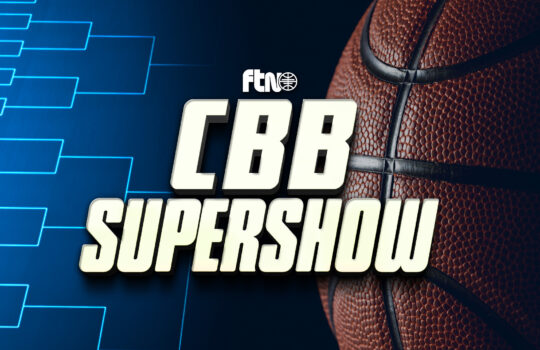




















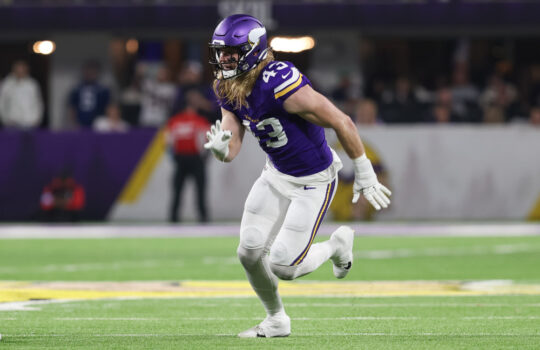



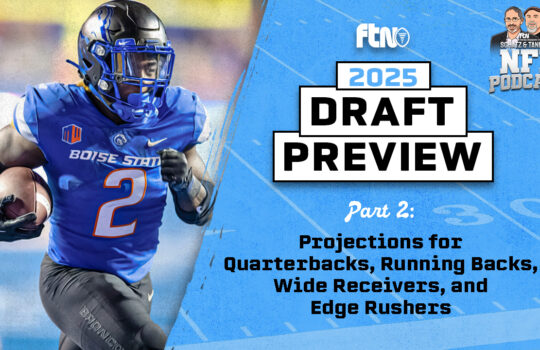

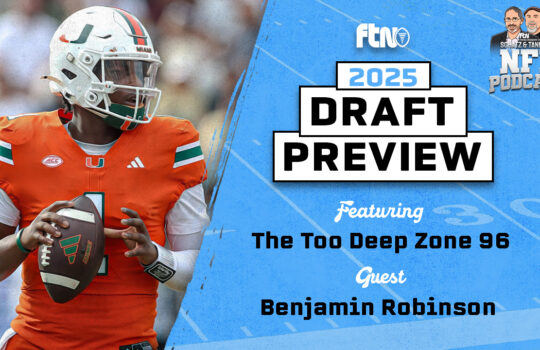
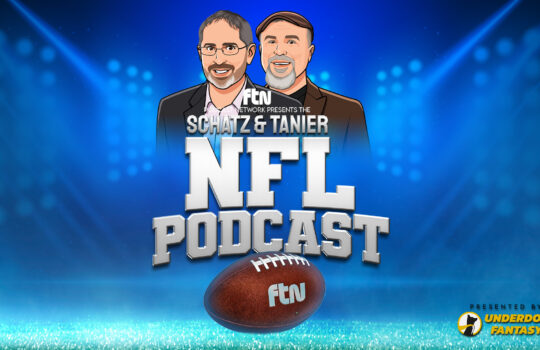




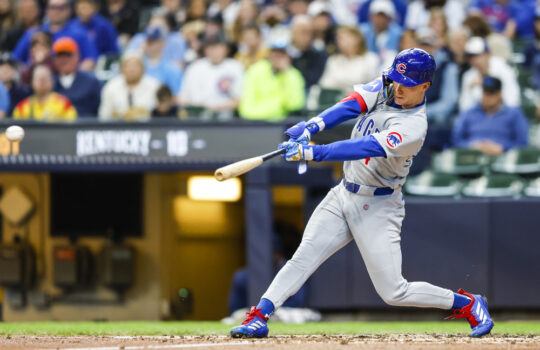

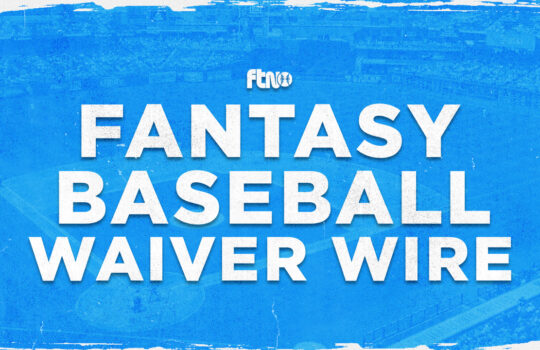

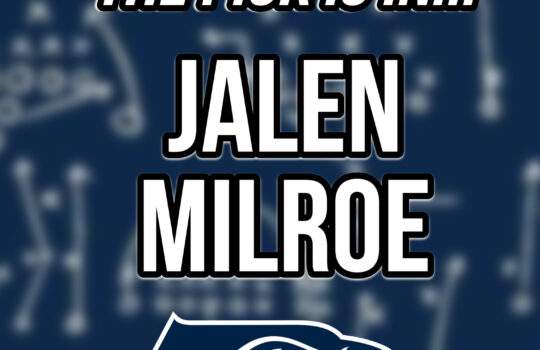

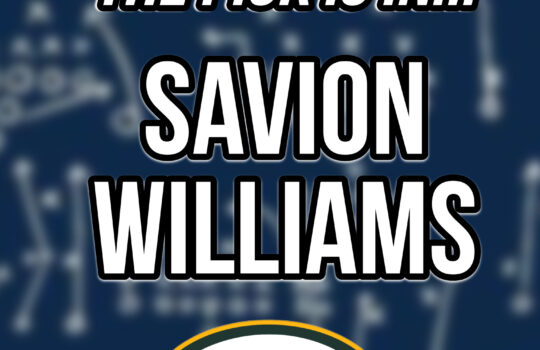
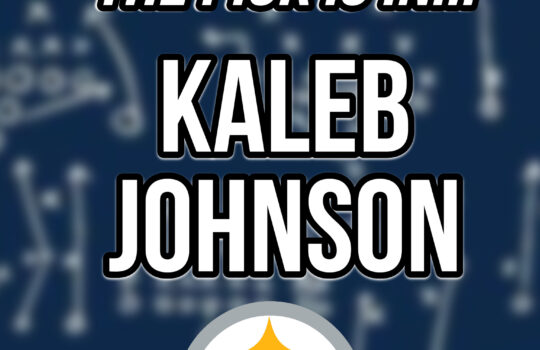

 New York Jets
New York Jets  New England Patriots
New England Patriots 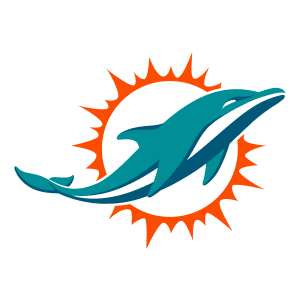 Miami Dolphins
Miami Dolphins  Buffalo Bills
Buffalo Bills  Pittsburgh Steelers
Pittsburgh Steelers  Cleveland Browns
Cleveland Browns  Cincinnati Bengals
Cincinnati Bengals  Baltimore Ravens
Baltimore Ravens 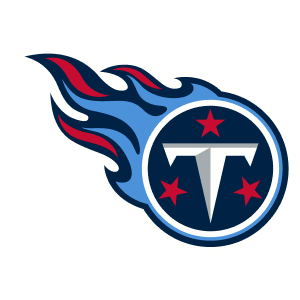 Tennessee Titans
Tennessee Titans  Jacksonville Jaguars
Jacksonville Jaguars  Indianapolis Colts
Indianapolis Colts  Houston Texans
Houston Texans  Las Vegas Raiders
Las Vegas Raiders  Los Angeles Chargers
Los Angeles Chargers  Kansas City Chiefs
Kansas City Chiefs  Denver Broncos
Denver Broncos  Washington Commanders
Washington Commanders  Philadelphia Eagles
Philadelphia Eagles  New York Giants
New York Giants  Dallas Cowboys
Dallas Cowboys  Minnesota Vikings
Minnesota Vikings  Green Bay Packers
Green Bay Packers  Detroit Lions
Detroit Lions  Chicago Bears
Chicago Bears 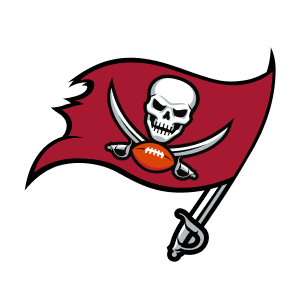 Tampa Bay Buccaneers
Tampa Bay Buccaneers  New Orleans Saints
New Orleans Saints  Carolina Panthers
Carolina Panthers 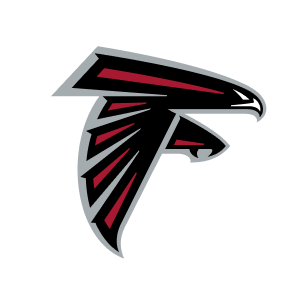 Atlanta Falcons
Atlanta Falcons  San Francisco 49ers
San Francisco 49ers  Seattle Seahawks
Seattle Seahawks  Los Angeles Rams
Los Angeles Rams  Arizona Cardinals
Arizona Cardinals 

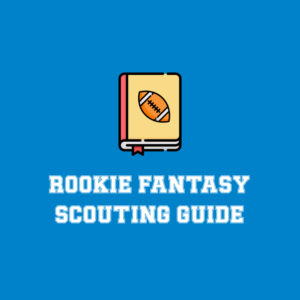






 Boston Celtics
Boston Celtics  Brooklyn Nets
Brooklyn Nets  Philadelphia 76ers
Philadelphia 76ers  New York Knicks
New York Knicks  Toronto Raptors
Toronto Raptors  Chicago Bulls
Chicago Bulls  Detroit Pistons
Detroit Pistons  Milwaukee Bucks
Milwaukee Bucks  Cleveland Cavaliers
Cleveland Cavaliers  Indiana Pacers
Indiana Pacers  Orlando Magic
Orlando Magic  Atlanta Hawks
Atlanta Hawks  Charlotte Hornets
Charlotte Hornets  Miami Heat
Miami Heat  Washington Wizards
Washington Wizards  Denver Nuggets
Denver Nuggets  Minnesota Timberwolves
Minnesota Timberwolves  Oklahoma City Thunder
Oklahoma City Thunder  Portland Trail Blazers
Portland Trail Blazers  Utah Jazz
Utah Jazz  LA Clippers
LA Clippers  Golden State Warriors
Golden State Warriors  Los Angeles Lakers
Los Angeles Lakers  Phoenix Suns
Phoenix Suns  Sacramento Kings
Sacramento Kings  Dallas Mavericks
Dallas Mavericks  Houston Rockets
Houston Rockets  Memphis Grizzlies
Memphis Grizzlies  New Orleans Pelicans
New Orleans Pelicans  San Antonio Spurs
San Antonio Spurs 










